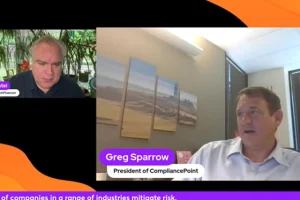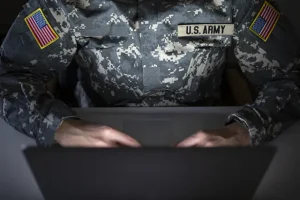Why Notifying Consumers that the “Call May be Monitored” is Critical to Your Organization
“This call may be monitored for quality assurance and training purposes.” We’ve all heard this disclosure before. Some of us roll our eyes and wonder, is this really necessary? We all know calls are recorded these days.
Well, we are here to tell you just how important it is for companies to ensure every employee placing calls to or receiving calls from consumers adheres to not only the federal call monitoring disclosure requirements, but also the state-specific requirements as well.
The federal rules require one-party consent, where only one party to the call must consent to the call being monitored or recorded; however, various states require two-party consent. States with the two-party consent rule require that the disclosure be made after the initial greeting is completed or before beginning any recorded portion of the call on both inbound and outbound calls. In other words, if a call is recorded or monitored, the disclosure must be made.
In order to achieve two-party consent, we suggest having employees sign off on a call monitoring consent form prior to placing calls and training employees to make the disclosure on every call placed into those states with the two-party consent requirement. Due to the issue of wireless mobility, it may be difficult to accurately determine the true state in which the consumer resides. Thus, the most conservative approach is to make the disclosure on every call to avoid potential violations associated with failing to make the disclosure in any state that may require it.
California is one such state that requires all parties consent to the call monitoring. Wells Fargo recently settled for $8.5 million for alleged violations against California’s Invasion of Privacy Act (CIPA). CIPA prohibits the intentional recording of calls to California residents without the consent of all parties to the call. Aside from the $8.5 million settlement, Wells Fargo was also required by the court to implement a comprehensive compliance program for one year. Included in this compliance program, Wells Fargo will appoint a compliance officer and periodically audit all agents placing calls to ensure all disclosures are made clearly and conspicuously at the beginning of each call. In another California case from July 2015, McCabe v. Hotels Group Resources, Inc. et al, Six Continents Hotels Inc. settled for $11.7 million for alleged violations against CIPA.
As you can see, violations against CIPA may lead to hefty settlements and fines. California is not the only state with the right to issue penalties for violations against the call monitoring disclosure requirements. Therefore, we recommend companies analyze all state-specific disclosure requirements prior to beginning any calling campaign.
Please feel free to refer to our previous posts on the topic:
- Call Monitoring Disclosure: Not Just for Outbound
- This call may be monitored or recorded…
For more information regarding other states with the two-party consent requirement and any other state-specific disclosure requirements, please reach out to us at consulting@compliancepoint.com.
Finding a credible expert with the appropriate background, expertise, and credentials can be difficult. CompliancePoint is here to help.





